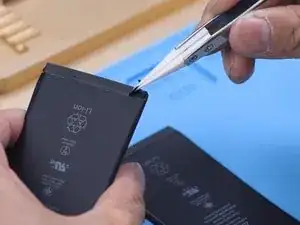
Reuse Old Batteries As A Power Bank
These are some common tools used to work on this device. You might not need every tool for every procedure.
An electric battery is a device consisting of one or more electrochemical cells that convert stored chemical energy into electrical energy. Each cell contains a positive terminal, or cathode, and a negative terminal, or anode. Electrolytes allow ions to move between the electrodes and terminals, which allows current to flow out of the battery to perform work. Batteries are used to power electrical devices such as flashlights, mobile phones, and electric cars.
Primary (also called single-use or disposable) batteries are designed to be used once and then discarded since the electrode materials are irreversibly changed during the discharge process. For example, alkaline batteries used for flashlights and many portable electronic devices are primary batteries.
Secondary (rechargeable) batteries are designed to be discharged and recharged multiple times using an applied electric current. Rechargeable batteries include lead-acid batteries used in vehicles and lithium-ion batteries used for mobile phones and laptops.
Batteries come in a variety of sizes, from tiny cells used to power wristwatches to the thin batteries used in smartphones and tablets, to large lead-acid batteries or lithium-ion batteries used in automobiles. Large battery banks can also be used to provide standby or emergency power for computer data centers and telephone exchanges.
The name “battery” was originally a term from the military referring to weapons functioning together, but Benjamin Franklin used the term in 1748 to describe a group of electrical devices. Alessandro Volta, an Italian physicist, was the first to build and describe an electrochemical battery, which he called a voltaic pile, in1800.